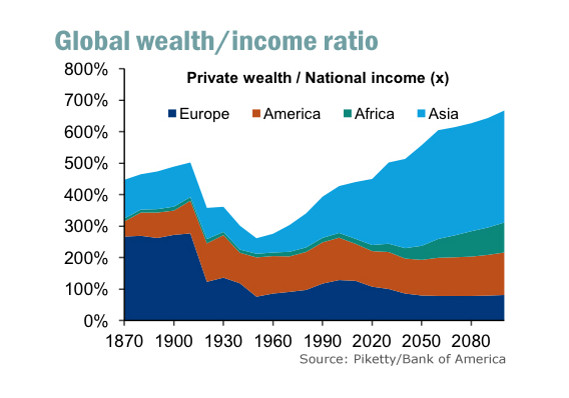Throughout history, social and economic inequalities have been fueled and justified by different ideologies. French economist Thomas Piketty’s books look at the advent and fall of these ideologies, and how could they evolve in the future.
Inequality

In his books, Piketty delves deeper to get a closer look at the disparity in society. Inequality in society has its root cause in the societal chains to which one is attached. Thus, Piketty does his research on inequality on the basis of ‘capital’.
Capital

There are different concepts of capital floating around in the economics literature. Piketty uses an expansive definition of wealth. He says wealth is much more unequally distributed than income. So there is a division in society into those who own things and those who work for their living.
Marxism

Piketty’s analysis of the economy is different from Karl Marx’s. Piketty says, “vision of a class-ridden, neo-Victorian society dominated by the unearned wealth of a hereditary elite.” The fortunes of the wealthy are destroyed by two World wars, and the great depression. Unless drastic measures are taken, the future belongs to people who simply owned stuff they inherited from their parents.
Wealth- to- income ratio

The comparison between the rate of return on capital and economic growth is the wealth-to-income ratio. A country’s wealth-income ratio is simply the value of all the financial assets owned by its citizens against the country’s gross domestic product. In all the developed countries the wealth-income ratio is on the rise.
Capitalism

Piketty finds out how capitalism works, is that existing wealth earns a 5 percent rate of return ‘r’. the total pool of labor income grows at the rate of overall GDP, ‘g’. When ‘r’ is larger than ‘g’ the pool of wealth owned by the wealth-owner grows faster than the pool of labor income earned by workers.
Neo-Victorian society

Piketty mentions that in Victorian and Edwardian times, people certainly did notice. The rent received, or inherited wealth was conventional wisdom in per- Europe, and not just among radicals. And of course, there was a lot of political radicalism in pre-war Europe.
Patrimonial

Piketty develops a new concept of ‘patrimonial’ capitalism, where the Forbes 400 list will be dominated not by the founders of new companies but by the grandchildren of today’s super-elite. The world is heading towards this kind of capitalism.





